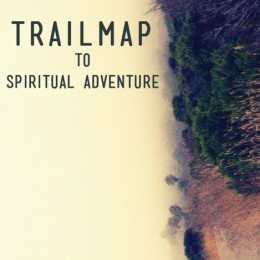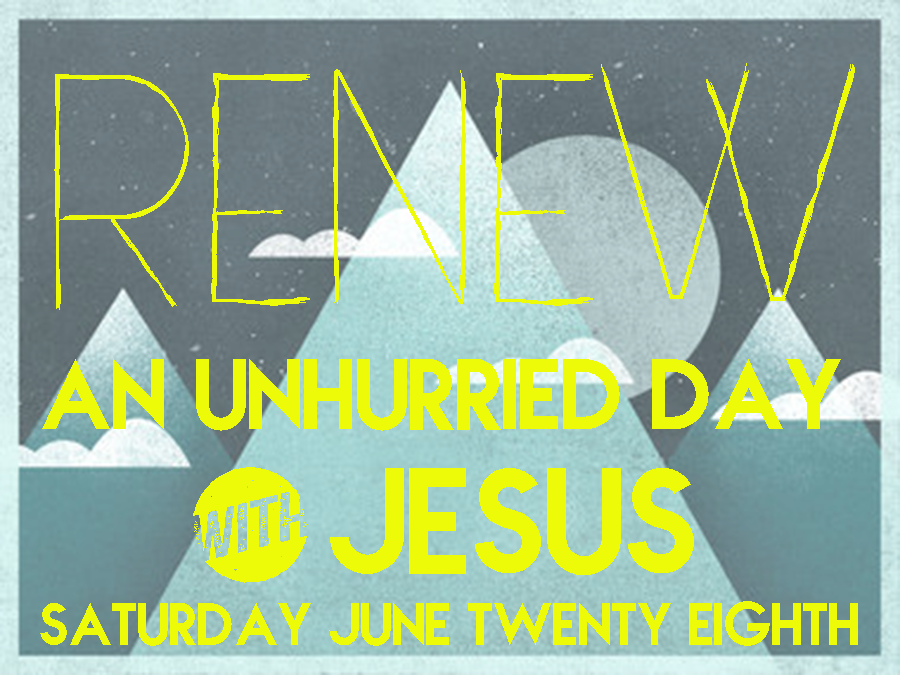Soul Sauna: Taking a Benedictine Retreat
If self-care is somewhere on your New Year’s Resolutions list, you might be asking yourself:
How can I get a rest, a real rest this year?
What would best help me clear my head and reset my heart?
What could most refresh and refuel me?
What might deeply reengage my relationship with God?
…and if you can carve out a 24-48 hour block of time to dedicate to this endeavor (which you should!), then I have an adventure for you:
A Benedictine Retreat!
You know that feeling when you get out of a hot-tub or sauna after a long time; that mellow, mushy, super-relaxed, nothing-can-upset-me type of feeling? A retreat like this does that for your soul, and there’s nothing quite like it.
So in the next few paragraphs, I will explain exactly how to go on a solo, silent, self-guided Benedictine retreat at a monastery, on your own terms, in your own way (but steeped in hundreds of years of spiritual history and practice) that will stretch and grow your mind, enlarge your soul, and help you deeply unplug. Let’s go!
BOOK YOUR RETREAT
The first thing you’ll need to do is look at your crazy-busy, jam-packed calendar and find a 24-48 hour window to block out. This may be tough, but it will be worth it. The longer the better, so try for 48 hours if possible. Choose a couple options, because when you call the retreat center they may be booked. Most don’t do email often, so calling is best. There are Benedictine monasteries all over the world that host individuals for self-guided retreats. I’ve been to three, and I highly recommend them:
Prince of Peace Abby (ocean)
650 Benet Hill Rd, Oceanside, CA 92058
(760) 967-4200
www.princeofpeaceabbey.org
St. Andrews Abbey (desert)
31001 N. Valyermo Rd, Valyermo, CA 93563
(661) 944-2178
www.saintandrewsabbey.com
Holy Cross Abbey (mountain)
901 Cool Spring Lane
Berryville, Virginia 22611-2700
(540) 955-4383
www.virginiatrappists.org
You’ll simply call them, tell them you’d like to come for an individual, self-guided retreat, and they will help you book your room. You normally pay at the end of your stay, with a check that you leave in an envelope and drop in a key-slot (and they are patient and gracious if you forget your checkbook and have to arrange payment later). Room and board costs are about $100 a night. This fee can sometimes be covered by your employer through a self-care/development budget, or through a spiritual development account if you’re in ministry, so don’t be afraid to ask your boss or supervisor about this.
PRAPARE FOR YOUR RETREAT
Now that you’ve got the dates booked, begin thinking through what to bring with you on the retreat. Pack light. This is a perfect time to practice simplicity!
Meals: If you don’t have any dietary restrictions, I highly recommend not bringing extra food or snacks; eat the simple, healthy meals that the monastery provides and nothing more. Skipping a meal or two, as a fast, is also another powerful practice, but I personally like the mealtime because it’s a unique setting to experience, and it fits nicely into the rhythm of the day. The food is healthy and simple and often locally farmed.
Clothes: Bring a sun hat and good walking shoes, and a coat for the cold nights (when you’re walking to and from the chapel). Dress is casual, plain, and muted. Wear what’s comfortable and what will be least distracting for you and others.
Books/Journals: Bring your Bible and a journal to write in. It’s fine to bring some other reading material, too, but don’t be tempted to fill up your entire retreat with reading catch-up or homework. The idea is to create space for your mind and heart, not constantly fill it with material. Also, these monasteries have interesting libraries where you can sit and read, or check out a book or two to take to your room.
The rooms are furnished with simple sheets, blankets, and pillows, so no extra bedding is needed. They also have clean, working, in-room bathrooms and showers, with little soaps included…so no need to bring a bunch of toiletries or beauty products, either. Go natural and leave the hair spray at home!
GETTING TO THE RETREAT CENTER
Driving out to the abbey for your retreat is a great time to begin slowing your mind and heart, calming your spirit, and preparing to be with God in a quiet, unique way. Take your time, go slow, listen to soul-nourishing music or stay in silence and begin practicing a posture of thoughtfulness. Ask God on this drive if He has any direction for you during the retreat. Questions like the ones below, followed by silence and listening, can sometimes begin to give shape and direction to your retreat:
“God, is there anything you want me to particularly do on this retreat?”
“God, is there anything you’d like me to particularly not do?”
“God, is there anything you’d like me to pay particular attention to?”
“God, is there a theme or topic in my life right now you want me to explore?”
A petitionary prayer you can fall back on at any time before or during the retreat could be something like this:
“God, I want to be open to You. Help me notice You – what You are doing, and where You are leading…and graciously guide me as I seek to follow You.”
ARRIVING AT THE RETREAT CENTER
Try to schedule your trip so that you arrive around 11:30am. This will get you there in time for noon lunch (you paid for it after all!), and get you settled in so you have a full afternoon ahead. Once you arrive, you’ll park your car and find the little office where the host will give you your room key and any instructions. Put your stuff in your room, check to see if you need anything, and intentionally decide what you will do with your phone. Definitely, don’t take it to meals, or the chapel, or anywhere if possible. Put it on silent – and no vibrate. Put it in the desk drawer if you can bear it. These retreat centers have no wi-fi (intentionally) and sometimes cell service is spotty. Give the retreat center’s phone number to family or friends before you leave, so they can reach you in an emergency, and that way you can feel more free to keep your phone packed away. Try to make a purposeful break from work demands, social media, and any other distracting temptations.
MEALTIME
Again, getting there for lunch is a great plan. Different monasteries eat meals (breakfast, lunch, and dinner) in different ways, so be ready to be flexible, patient, and just go with the flow. Some places have their meals in complete silence, others include some background music or even a monk reading from classic literature, and others make this time casual and conversational where you can get to know the other folks taking a retreat like yourself. In my experience, there’s usually about 5-10 other retreat goers there, mixed in age and gender, and everyone seems to be particularly calm, quiet, and polite. Be friendly if you’d like, but also don’t feel any pressure to talk (definitely don’t network!). There’s an understanding in these quickly formed communities – some primary goals shared by all; to connect with God, to rest, to be peaceful, to listen, to slow down, to be humble, to unplug, and to practice some silence and solitude. So be sensitive and aware of these values as you settle in and find your way around.
THE FIRST FEW HOURS
The question I probably get asked the most about a retreat like this is, “What do you do all that time?” You might be wondering how in the world you’d occupy yourself for a couple days at a monastery, so I’ll attempt to help fill in some blanks here…
The first afternoon, after lunch, is a great time to get settled into your room and maybe do some exploring around the retreat center grounds. I also take this time to read over all the brochures and retreat information they give. Benedictine abbeys have a regimented, strict schedule of services in their chapel, so I make sure to mark the times for these and become familiar with everything I can. It’s fun and interesting to learn about a place and its history. I love looking at all the antique pictures in the lobby or library and generally trying to soak up the setting. If you’re exhausted when you arrive, diving into a nap before dinner is also a worthwhile pursuit. This is a time for rest, and if that means actual, literal rest then by all means, take advantage of it!
THE CHAPEL SERVICES
As mentioned earlier, your time at the abbey will be punctuated by several chapel services, all marked by the ringing of the bell tower. These services are fairly short (about 20 min.) and are very interesting and stretching experiences. Try to attend them all! I find they help break up my time, give me scheduled handholds throughout the day, and make me feel part of something bigger. Their rhythm spurs me along, and their content (mostly the Psalms, chanted or sung by the monks) begins to soften my heart and widen my view of God and the world.
Benedictine monasteries are unapologetically Roman Catholic in theology, ritual, and tradition so sometimes this will be evident, and if you’re a “regular ‘ol Baptist-ish-Protestant-Christian” like me, sometimes a prayer to Mary or a saint may catch you off guard (although I’ve actually found prayers like these to be quite rare). I, personally, enjoy keeping an open mind to all this, and I encourage you to do so, as well. It’s so different from my normal church experience, and it’s educational and inspiring to sit with other Jesus followers from different backgrounds…all being led by around twelve monks who’ve given their very lives over to worship God.
As you walk in the chapel door, there will be a printed handout for the service. Take a copy and use it to follow along. You’re welcome to join the small congregation in singing along with the monks (I always try it!), and there are tons of responsive reading parts that you get to do, too. There’s sitting, standing, bowing, kneeling…lots of actions that keep things interesting. Try to do them all, and see how God uses these unique spiritual practices to speak to you. The service before lunch (“Mass”) has communion as a part of it, and this is the only element that non-Catholics can’t participate in, but you won’t feel awkward abstaining from that part.
If I don’t sleep in, I try to attend the early morning chapel around 7 or 8am. Then it’s breakfast, a break, and the service before lunch. There’s also a service before dinner called “Vespers” (which includes an epic sunset view if you’re at Prince of Peace in Oceanside during the winter!). Following dinner at around 8pm is the “Compline” service. This last chapel service before bed is a wonderful way to prepare for nighttime, rest your heart and soul for sleep, and enter into the evening silence. Some monasteries have a midnight or incredibly early morning service (like 3:30am!). Heading out to this one in the middle of the night ups the adventure quotient if you’re game!
It’s something about the rhythm of these chapel services, the ringing of the bell tower, and the pervading silence enveloping everything else that starts to work this “soul sauna” effect. The words of the Psalms, sung without rhymes or drumbeats, and the simple, ancient prayers begin to weave there way into your heart and spirit. By bedtime, there’s a deep peace and stillness falling over everything, and you can’t help but be wrapped up into it. In monastic communities, this time is sometimes referred to as “The Great Silence”, and something about the atmosphere makes it truly feel like that.
The last retreat I took, I left at 10am, arriving before lunch, and left after the evening “Vespers” service the next day, getting home around 10pm. This gave me about 36 hours of dedicated “retreat” time, and it was perfect. It turned out to be a good compromise and alternative to my original 48-hour goal.
OTHER FUN THINGS TO DO TO FILL UP YOUR TIME
Most of these retreat centers have an elaborate “Stations of the Cross” walking path. These can be a formative practice. Take your time, go slow…really slow…walk slow, think slow, read slow…see how long you can stretch the experience out! There’s often other nature walks or different places to explore, as well (like a huge cross on a hilltop) so get out there and do some walking! I sometimes like taking pictures of my surroundings. Capturing some of the natural beauty on these retreats is a good way to remember these moments, focus your attention, and create some snapshots to reflect on later.
Make sure to take advantage of the coffee and tea stations along the way. Most places have hot water and assorted items available (hot chocolate, etc…) throughout the day and night. I’m always trying new tea flavors or experimenting with coffee/chocolate/mocha combinations. Ah, the simple indulgences ☺
Between nature walks, reading, resting, and participating in the chapel services, you might still find yourself with potentially several hour-long blocks of time to fill, and this is where some prayer guides or personal spiritual exercises can be helpful. I’ve enjoyed a variety of activities in these times, from playing my guitar or ukulele and singing worship songs (or old favorite, obscure tunes that I rarely get to play), to imaginative Bible reading, listening prayer, centering prayer, good ‘ol fashioned prayer requests, journaling, and drawing. There’s an endless array of options, and it keeps things interesting to ask God to lead you in these times and to be open to trying new things. A retreat like this might be a great time to just “play”; bring along your musical instruments, photography gear, hiking boots, or painting supplies and take time to do fun things with God that your busy schedule at home rarely permits. Avoid undertakings, though, that require intense focus or demand all your senses toward a task. Activities like these can leave little room for God to speak and distract you from an open, listening posture.
DRIVING HOME
Remember to intentionally pray through your drive home from the retreat. You’ll be coming out of a very slowed-down, quiet, and hopefully soul-nourishing experience and possibly heading straight back into the noise, chaos, and demands of work and family. You want to be ready and prepared to be a blessing to your loved ones when you return. Think through how you can serve them or be especially present when you arrive back. Entrust the special, intimate time you had with God to His care and be ready to shift gears for the sake of others. The spiritual treasures you experienced on retreat will stick with you (especially if you write them down in a journal!) and continue to work their way through your life, deepening your walk with God and leading you to places of peace and maturity in Him.
There’s so much more to say and offer in the way of personal prayer and spiritual activity ideas while on retreat. There are books and websites dedicated to this kind of thing and even retreat devotionals catering to particular themes or seasons of life. Reach out to me if you’d like some more ideas, links, or guidance on finding specific content. I’d be happy to offer suggestions and support as you take this plunge into the “soul sauna” of Benedictine retreat. You’ll be glad you did!
Read More




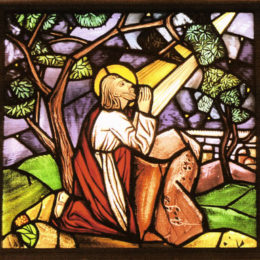
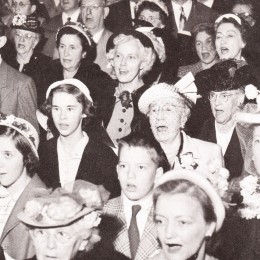
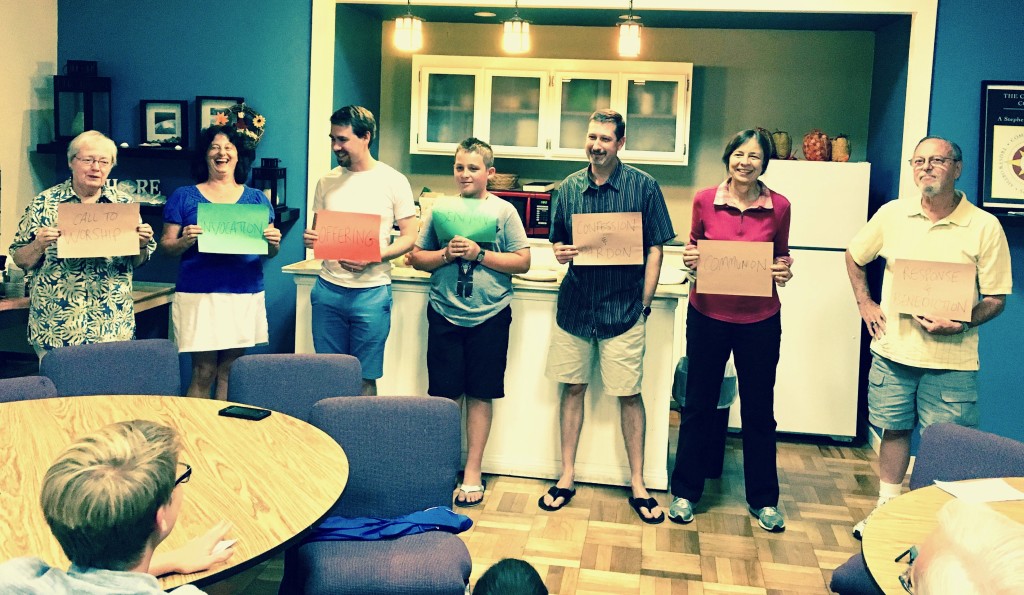 It is truly miraculous how music plays a big part in our lives, how a song can get “into us” in the deepest of ways. Two members of our community shared examples of songs that have moved them profoundly, and since they come from very different spectrums, I thought it’d be educational and inspiring to link them here. Listen to them both and appreciate with us the diversity and creativity of God’s people!
It is truly miraculous how music plays a big part in our lives, how a song can get “into us” in the deepest of ways. Two members of our community shared examples of songs that have moved them profoundly, and since they come from very different spectrums, I thought it’d be educational and inspiring to link them here. Listen to them both and appreciate with us the diversity and creativity of God’s people!